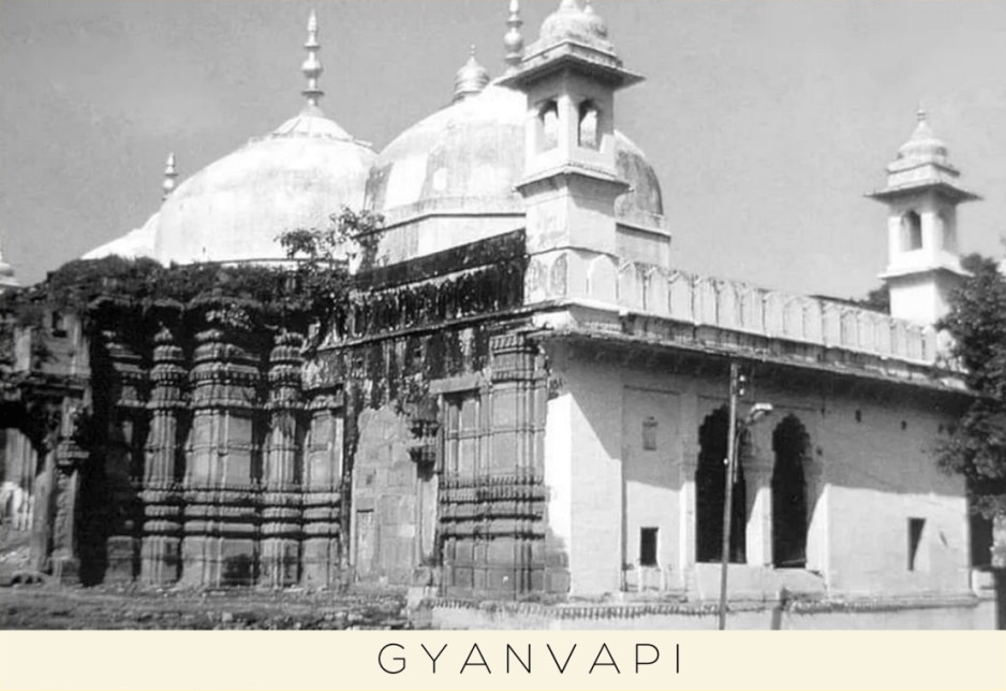The Gyanvapi issue is a long-standing dispute in Varanasi, India, over a religious site claimed by two separate communities. The dispute centres around the Gyanvapi Mosque, which is said to have been built by the Mughal emperor Aurangzeb on the site of the original Kashi Vishwanath temple. Hindus claim that the mosque was built after the original temple was destroyed and therefore, the site is rightfully a Hindu holy place. Muslims, on the other hand, argue that the mosque has been a place of Islamic worship for centuries and should remain as such. The issue continues to be a point of contention and legal battles, reflecting the broader tensions between these two communities in India.
This long-standing dispute has led to numerous court cases and public debates. The complexity of the issue is deep-rooted and goes beyond the mere question of who the site belongs to. It touches on important aspects of cultural heritage, religious freedom, and the historical narratives of the two communities involved.
While the debate over this issue had died down, it started gaining traction again after the Ayodhya judgement and now that the Shri Ram Temple in Ayodhya has been inaugurated. The successful completion of the Shri Ram temple, which itself was a site of a long-standing dispute, has fueled speculations about the possible resolution of the Gyanvapi issue. Both the Ayodhya temple and Gyanvapi Mosque issues stem from claims of religious sites being built over after the destruction of temples. The resolution of the Ayodhya dispute has had significant implications for India’s socio-political landscape, and it has inevitably influenced the discourse surrounding the Gyanvapi issue.
Post the Shri Ram temple inauguration, there has been a renewed push from certain sections demanding the restoration of the Kashi Vishwanath temple at the Gyanvapi site. They argue that if a resolution could be reached in Ayodhya, a similar outcome can be achieved for the Gyanvapi Mosque. However, it’s crucial to note that the contexts of the two issues are different. An identical approach may not be feasible or desirable. The need of the hour is to maintain communal harmony and ensure that any discourse or action related to the Gyanvapi issue is conducted in a respectful and peaceful manner.
What certain segments of society that are canvasing for the Gyanvapi issue, on opposing ends, fail to understand is that the Ram Mandir was built after the court decided on the issue after much deliberation. This is not something that can be done through the use of muscle power or stirring up religious disharmony. The so – called digital upholders of the different religions in India need to understand that we are a secular democracy. Minority and majority appeasement needs to stop. Everyone is an Indian first and foremost.
Instead of people investing their energy in disputing over various places of worship, it would be in everyone’s best interest to address greater issues in this country, such as poverty. Looking at each other as a fellow citizen of the country and helping each other would serve us all much better than identifying each other as those of rival religions, this would help the nation progress as well.
The Gyanvapi issue is controversial, no doubt, but then religion is a controversial topic in our country. The only thing I hope for is that we as Indians rise above this disharmony and foster friendships with each other that transcend differences. I hope the younger generations understand the essence of our Constitution and what it truly means to be a secular nation. I hope we all can find small joys in everyday life in the midst of this unrest, I hope peace reigns supreme in this country one day.
I hope.

